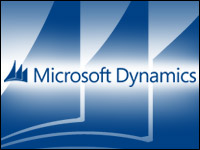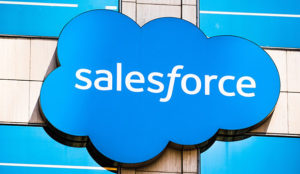
Microsoft on Tuesday announced that it will acquire Parature, which provides customer engagement solutions as a service.
Parature’s technology will add self-service, support ticketing and other capabilities to Microsoft Dynamics.
Microsoft reportedly will pay US$100 million for the company.
“Once the deal closes, Parature will become part of Microsoft,” Parature cofounder and CMO Duke Chung told CRM Buyer, but “Parature cloud services will continue to be available for purchase separately.”
What Parature Will Bring to Dynamics
Parature’s technology lets organizations set up self-service portals on the Web and Facebook.
It lets users provide mobile customer care on any device; enables social customer support; and leverages chat — both in traditional customer service scenarios and for proactive sales engagement to create new revenue-generating opportunities.
The purchase will let Microsoft go after an increasingly important market: small and medium businesses.
“Parature targets the SMB market, and Microsoft Dynamics targets larger organizations,” Kate Leggett, a principal analyst at Forrester Research, told CRM Buyer.
Microsoft “is plugging some functionality gaps with Parature,” she added.
Baby Steps
In the short term, the Parature acquisition “is going to have little impact on the market,” Michael Maoz, a vice president and distinguished analyst at Gartner, told CRM Buyer.
However, “in the two- to three-year time frame, if Microsoft continues to make good decisions, it could have a small to medium impact on the market,” he suggested.
Microsoft’s history in the CRM product space “has been less than stellar,” Maoz elaborated. The company has “had a lot of fits and starts” and, despite having been in the market for 15 years, has trailed companies like Salesforce.com.
Further, Parature “is focused primarily on U.S.-based organizations, with more than 90 percent of its customers being U.S.-based,” Maoz pointed out.
It “has only a dozen sales people to speak of, with no data centers outside of the U.S., so scalability is a big question,” he noted. “So this is a small step. Microsoft is not trying to make a big step.”
Where Dynamics Stands
For what Microsoft Dynamics offers, it is doing well, Forrester’s Leggett observed. However, that may not be enough.
Perhaps Microsoft has made its mark in the CRM space “in terms of trailblazing technology,” Gartner’s Maoz said, “but in terms of trailblazing business applications, integration with partners, or integrating technologies and putting them together into a compelling suite — no.”
Microsoft has “a lot of great assets, from Skype to Lync to Yammer, and on paper they sound great,” he added, but it does not do so well “when it comes to packaging business applications in the CRM space and the new methods of delivery like cloud and customer engagement.”
Microsoft Dynamics could make more headway, Maoz opined, if it took steps to improve its partner network, beef up its system integrator and consultants ecosystems, and further build out its complementary vendor ecosystem and its direct sales and support organizations.





















































